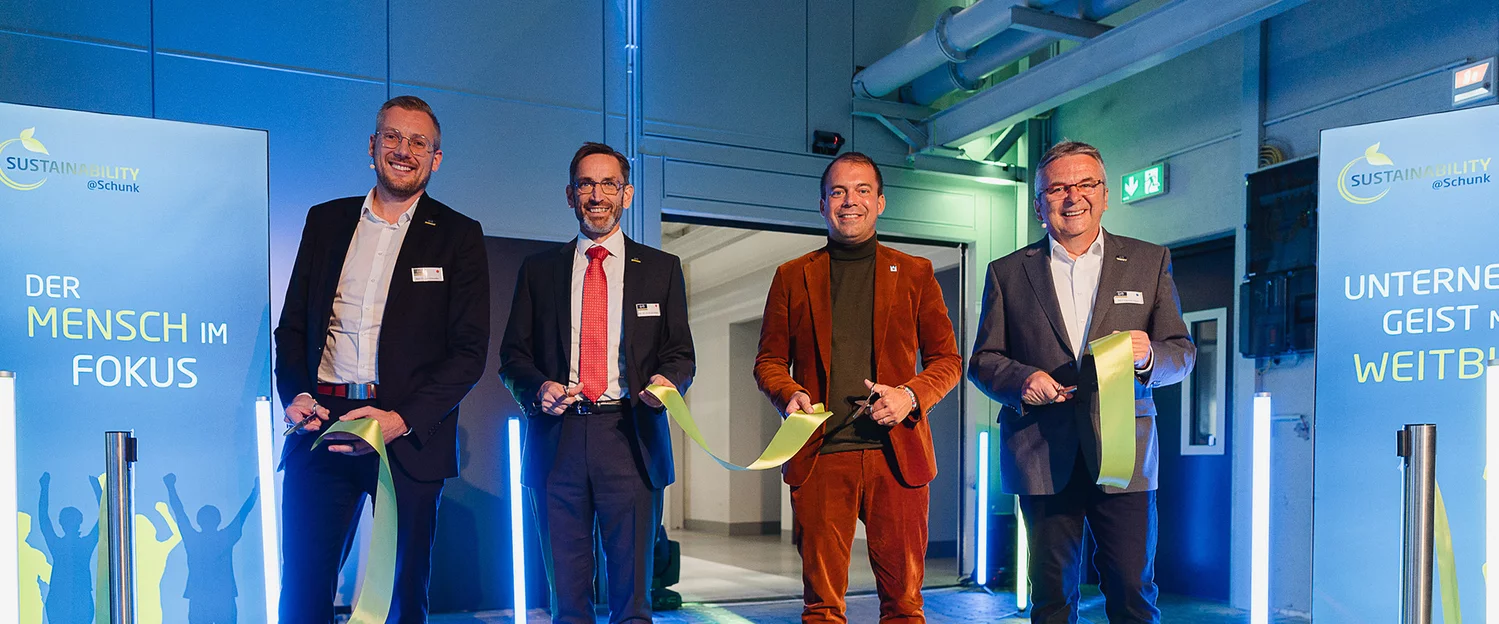Schunk is thus significantly expanding its lead in 3D printing of engineering ceramics: With an investment volume of 58 million euros, we have created new capacity at the Willich site for manufacturing products for the chip industry. This is one of the largest single investments in Schunk's history.
After a record-breaking construction period - the foundation stone was laid in June 2022 - the new production building was officially opened today in the presence of the Mayor of Willich, Christian Pakusch. "I am pleased that with the successful completion of this project, we have paved the way for further growth here at the Willich site," said Dr. Ulrich von Hülsen, Member of the Schunk Group Executive Board. "Schunk is thus expanding its globally unique capability to manufacture industrial ceramics in geometries of any complexity."
In total, the Schunk Group has invested 58 million euros at the site: around 16 million for the new production hall, around 36 million for equipping it with high-tech machinery, and around six million euros for expanding production in the existing building.
High-tech production of 3D-printed components
The new production building is fully geared to the needs of 3D printing of technical ceramics. In particular, it serves to further expand a globally unique skill of the Schunk technology group, namely the high-precision production of industrial ceramics in any complicated geometry. The fully air-conditioned hall, which covers a total area of around 3,500 square meters, therefore houses in particular machines for high-precision hard machining of technical ceramics as well as high-precision measuring technology. This is used to mechanically rework and measure the silicon carbide (SiC) components produced by means of 3D printing.
"For Schunk Ingenieurkeramik, 3D printing of ceramics has become a key technology," said Managing Director Joachim Heym. This innovation from Willich has established itself in the market in just a few years, Heym said. "The new production building will give us the opportunity to continue this success story at a fast pace." Around 50 employees are expected to work in the new production building alone - Schunk Ingenieurkeramik therefore has a great need for skilled workers. For Schunk Ingenieurkeramik, the investment has therefore also paved the way for strong growth in a high-tech segment of German industry. Last but not least, the city of Willich is pleased about this: With more than 400 employees, Schunk Ingenieurkeramik is already well on its way to becoming the largest employer in Willich, as Mayor Pakusch emphasized in his welcoming speech.
Extremely hard and yet light
3D printing from silicon carbide is particularly interesting for components that need to exhibit especially high rigidity and strength. This is because, compared to other materials such as steel, the extremely hard yet relatively light ceramic hardly expands at high temperatures and offers extreme dimensional stability. The silicon carbide, which will later be diamond-hard, is initially available as a powder and is mixed with a binder. Using CAD design data, a 3D printer then models the desired component layer by layer.
Such components made of printed silicon carbide are used, among others, in metrology, aerospace technology and, in particular, in the semiconductor industry, where Schunk Ingenieurkeramik has been able to successfully establish its high-tech production process. "We are supplying into the heart of one of the most important machines in chip production and are thus part of a technical revolution in modern chip production," Heym was pleased about the extremely positive development of the innovation from Willich. Schunk Ingenieurkeramik is the global technology leader in this field, because only Schunk can realize the demanding material properties required by the chip industry in 3D printing.

